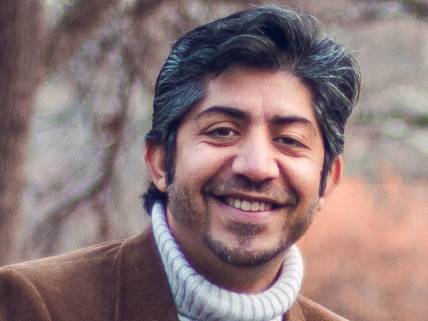Alumni Spotlight: Mustafa Babak (Global EMPA 2017)

Where do you work?
I am the Co-Founder and Executive Director of Afghan-American Foundation (AAF), a non-profit organization founded in 2020 to elevate and advance the interests of Afghan-Americans through policy and cultural advocacy, education, research, and community engagement.
Describe your current job.
In my capacity as the Executive Director of AAF, I hold the responsibility for defining the organization's strategic priorities. These priorities are centered on advocating for and providing support to the Afghan diaspora in the United States. This multifaceted role encompasses advocating for policy reforms, engaging with both public and private sectors to amplify the voices and interests of Afghan-Americans, facilitating the resettlement and integration of newly arrived Afghans in the U.S., bolstering Afghan-American communities through capacity-building, engagement, and coalition-building efforts, preserving and promoting Afghan culture, and facilitating the institutional development and sustainability of AAF.
Why did you choose the NYU Wagner Graduate School of Public Service?
My deep-seated interest in and passion for public service has been a longstanding part of my career journey. My early experiences working in Afghanistan, where I contributed to development and reconstruction efforts in my home country, instilled in me the conviction that public service is among the noblest of vocations. It plays a pivotal role in advancing policy and governance reform, fostering an engaged and informed civil society, and enhancing the overall well-being of citizens. Wagner stood out as the institution with a proven track record of nurturing individuals like me who aspired to pursue this noble path in public service.
What was your favorite class while at Wagner?
While I had the pleasure of enjoying several classes, "Institutions, Governance, and Public Sector Reform" stood out as my absolute favorite. This course provided me with valuable insights, tools, and a comprehensive understanding of policy, governance, public sector reform, and innovation. This knowledge was particularly meaningful in a world undergoing rapid economic, political, and social transformations.
What skills did you develop at Wagner were most helpful?
I honed my abilities in understanding policy formation, policy analysis, and advocacy. Additionally, I developed a more strategic and analytical approach to thinking about institutional reform, institutional change, and policy formation and implementation. Moreover, I refined my skills in policy writing.
What about your Wagner experience was helpful in your career?
The significant intersection between theory and practice stands out as one of the most valuable takeaways from my time at Wagner. Delving deeply into critical policy concepts, institutional reform, and governance at both local and global levels was immensely beneficial. Additionally, the program's practical elements facilitated my involvement in a meaningful capstone project with the World Bank Group. Most importantly, the program instilled in me a profound understanding of the impact of public service, regardless of the career path I chose. This understanding has been evident in my work in global health and health finance as well as my current endeavors in advocacy and community building.
How did you determine the path?
It wasn't something I had meticulously planned, but rather a journey shaped by my aspirations, which were significantly enhanced and highlighted during my time at Wagner. Whether it was my work in Kenya focused on health sector reform or my advocacy for constructive immigration policies in the U.S., Wagner unquestionably fortified my commitment to pursuing a career in public service.